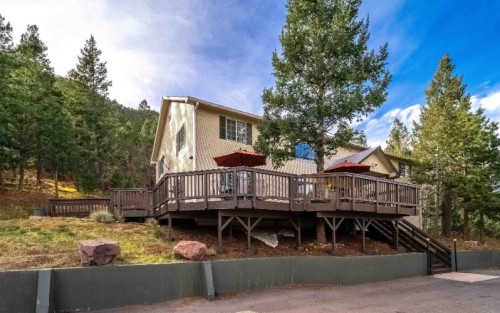

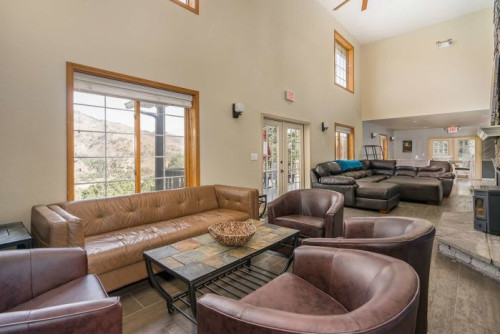
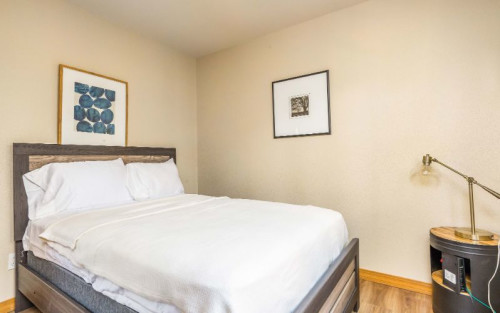
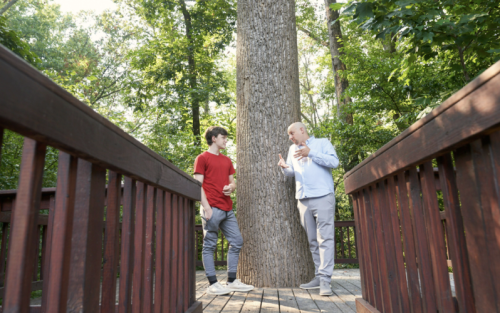




Sandstone Care Teen Center at Cascade Canyon
Verified Center
This provider's information has been quality-checked by Recovery.com's Research Team for accuracy and completeness, including center verification through appropriate third-party organizations.
Treatment Focus
This center treats substance use disorders and co-occurring mental health conditions. Your treatment plan addresses each condition at once with personalized, compassionate care for comprehensive healing.
Primary Level of Care
Offering intensive care with 24/7 monitoring, residential treatment is typically 30 days and can cover multiple levels of care. Length can range from 14 to 90 days typically.
Treatment Focus
This center treats substance use disorders and co-occurring mental health conditions. Your treatment plan addresses each condition at once with personalized, compassionate care for comprehensive healing.
Primary Level of Care
Offering intensive care with 24/7 monitoring, residential treatment is typically 30 days and can cover multiple levels of care. Length can range from 14 to 90 days typically.
Provider's Policy
At Sandstone Care, we accept all major insurance companies. Our experts will contact your insurance provider and provide a free and confidential verification of benefits. This will allow us to determine any deductible amounts, coinsurance, or co-pays to be collected. No one likes a surprise when it comes to insurance coverage and billing. We will ensure you have a clear picture of what the costs of treatment would be and how to maximize your insurance benefits.
Sandstone Care Teen Center at Cascade Canyon
Sandstone Care Teen Center at Cascade Canyon
About Sandstone Care Teen Center at Cascade Canyon
Sandstone Care Teen Center at Cascade Canyon provides age-appropriate treatment that helps teens change the trajectory of their lives. For teens struggling with addiction and co-occurring mental health issues, their holistic treatment approach gets to the bottom of what’s hurting a teen’s well-being. They offer residential treatment with small group sizes and a focus on strengthening the family unit. Academic support is also provided to help teens stay on track with coursework.
Improve Values, Habits, and Relationships
Sandstone Care relies on its CLICC Framework—Commitment, Life Skills, Integrity, Connection, Community—to identify areas that need attention for each teen. Through individual and group sessions using scientifically proven therapies, teens are able to recognize their strengths and improve any areas that are holding them back. The goal is to get to the root of problems and have each teen experience a game-changing moment that sets the stage for lasting recovery.
Find Comfort in a Stable Environment
Sandstone Care is situated just outside Colorado Springs, next to Pikes Peak Mountain. Teens stay in a secure lodge with semi-private, comfortable bedrooms and a large deck with beautiful views. With a structured sleep schedule and chef-prepared meals, teens are ready to engage at their best during therapy and activities.
Keep Moving Forward
After residential treatment, Sandstone Care’s dedicated aftercare team ensures teens stay supported with ongoing resources and connections. Their discharge planners offer personalized aftercare planning, including seamless transitions into day treatment or intensive outpatient programs. These step-down options provide continued behavioral health support without the hassle of starting over elsewhere—helping clients maintain momentum and stability.

Highlights from the Center
Highlights
These highlights are provided by and paid for by the center.
1-on-1 Counseling
Equine Therapy
Nature Lovers
Adolescents
Center Overview
Treatment Focus
This center treats substance use disorders and co-occurring mental health conditions. Your treatment plan addresses each condition at once with personalized, compassionate care for comprehensive healing.
Joint Commission Accredited
The Joint Commission accreditation is a voluntary, objective process that evaluates and accredits healthcare organizations (like treatment centers) based on performance standards designed to improve quality and safety for patients. To be accredited means the treatment center has been found to meet the Commission's standards for quality and safety in patient care.
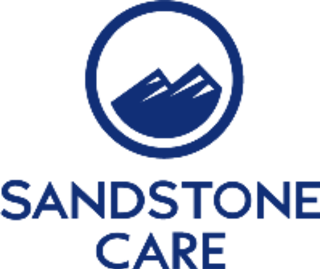
Sandstone Care Teen Center at Cascade Canyon
Insurance Accepted
Cash Pay Rates
Estimated Cash Pay Rate
Center pricing can vary based on program and length of stay. Contact the center for more information. Recovery.com strives for price transparency so you can make an informed decision.




More Sandstone Care Locations
Recovery.com Verified Listing
Recovery.com verified that the name, location, contact information and license to operate for this treatment provider are valid and up-to-date.

Joint Commission Accredited

NAATP Member
Recovery.com is an independent, third-party mental health resource. Verification does not imply endorsement and does not guarantee the quality of treatment services.
Meet Your Care Team

Amanda Porter
Program Director
LPC, LAC

Katelyn Rusk
Primary Therapist
MA, LPC

Pamela Weisman
Family Therapist
MA, LPC, CAS

Ashley Keckeisen
Residential Therapist
MA, LPCC, EMDR, BST
Your Care Options
Specializations
Adolescents
Teens receive the treatment they need for mental health disorders and addiction, with the added support of educational and vocational services.
Alcohol
Using alcohol as a coping mechanism, or drinking excessively throughout the week, signals an alcohol use disorder.
Art Therapy
Visual art invites patients to examine the emotions within their work, focusing on the process of creativity and its gentle therapeutic power.
Co-Occurring Disorders
A person with multiple mental health diagnoses, such as addiction and depression, has co-occurring disorders also called dual diagnosis.
Drug Addiction
Drug addiction is the excessive and repetitive use of substances, despite harmful consequences to a person's life, health, and relationships.
Experiential Therapy
With this approach, patients heal by doing. Therapists help patients process difficult emotions to speak, using guided activities like art or dance.
Family Therapy
Family therapy addresses group dynamics within a family system, with a focus on improving communication and interrupting unhealthy relationship patterns.
Who We Treat
Adolescents
Teens receive the treatment they need for mental health disorders and addiction, with the added support of educational and vocational services.
Treatment Services
Day Treatment
In a PHP, patients live at home but follow an intensive schedule of treatment. Most programs require you to be on-site for about 40 hours per week.
Intensive Outpatient Program
In an IOP, patients live at home or a sober living, but attend treatment typically 9-15 hours a week. Most programs include talk therapy, support groups, and other methods.
Outpatient
During outpatient rehab, patients attend a structured treatment program while continuing to live at home.
Residential
In a residential rehab program, patients live onsite, with access to daily treatment and 24-hour care. An average stay is 30-90 days.
Approaches
Evidence-Based
A combination of scientifically rooted therapies and treatments make up evidence-based care, defined by their measured and proven results.
One-to-One
Patients work with their treatment team members on a 1-on-1 basis, keeping their journey and treatment fully private and personalized.
Therapies
1-on-1 Counseling
Patient and therapist meet 1-on-1 to work through difficult emotions and behavioral challenges in a personal, private setting.
Meditation & Mindfulness
A practiced state of mind that brings patients to the present. It allows them to become fully aware of themselves, their feelings, and the present moment.
Adventure Therapy
This experiential approach uses the physical and emotional challenges of outdoor activities as tools for personal growth.
Art Therapy
Visual art invites patients to examine the emotions within their work, focusing on the process of creativity and its gentle therapeutic power.
Equine Therapy
Guided interactions with trained horses, their handler, and a therapist can help patients improve their self-esteem, trust, empathy, and social skills.
Experiential Therapy
With this approach, patients heal by doing. Therapists help patients process difficult emotions to speak, using guided activities like art or dance.
Eye Movement Therapy (EMDR)
Lateral, guided eye movements help reduce the emotional reactions of retelling and reprocessing trauma, allowing intense feelings to dissipate.
Family Therapy
Family therapy addresses group dynamics within a family system, with a focus on improving communication and interrupting unhealthy relationship patterns.
Conditions We Treat
Anxiety
Anxiety is a common mental health condition that can include excessive worry, panic attacks, physical tension, and increased blood pressure.
Bipolar
This mental health condition is characterized by extreme mood swings between depression, mania, and remission.
Depression
Symptoms of depression may include fatigue, a sense of numbness, and loss of interest in activities. This condition can range from mild to severe.
Post Traumatic Stress Disorder
PTSD is a long-term mental health issue caused by a disturbing event or events. Symptoms include anxiety, dissociation, flashbacks, and intrusive thoughts.
Self-Harm
The act of intentionally harming oneself, also called self-injury, is associated with mental health issues like depression.
Trauma
Some traumatic events are so disturbing that they cause long-term mental health problems. Those ongoing issues can also be referred to as "trauma."
Substances We Treat
Alcohol
Using alcohol as a coping mechanism, or drinking excessively throughout the week, signals an alcohol use disorder.
Benzodiazepines
Benzodiazepines are prescribed to treat anxiety and sleep issues. They are highly habit forming, and their abuse can cause mood changes and poor judgement.
Co-Occurring Disorders
A person with multiple mental health diagnoses, such as addiction and depression, has co-occurring disorders also called dual diagnosis.
Cocaine
Cocaine is a stimulant with euphoric effects. Agitation, muscle ticks, psychosis, and heart issues are common symptoms of cocaine abuse.
Drug Addiction
Drug addiction is the excessive and repetitive use of substances, despite harmful consequences to a person's life, health, and relationships.
Ecstasy
Ecstasy is a stimulant that causes intense euphoria and heightened awareness. Abuse of this drug can trigger depression, insomnia, and memory problems.
Heroin
Heroin is a highly addictive and illegal opioid. It can cause insomnia, collapsed veins, heart issues, and additional mental health issues.
Methamphetamine
Methamphetamine, or meth, increases energy, agitation, and paranoia. Long-term use can result in severe physical and mental health issues.
Languages
Aftercare
Care Designed for Your Needs
Personal Amenities
Amenities
Special Considerations
Family Member Stays
Treatment providers welcome family members to stay on-site to better the experience and success of patients and their families as a whole.
Gender-specific groups
Patients in gender-specific groups gain the opportunity to discuss challenges unique to their gender in a comfortable, safe setting conducive to healing.
Activities
Yoga
Yoga is both a physical and spiritual practice. It includes a flow of movement, breathing techniques, and meditation.
Off-Site Activities

Learn More About the Center
5 Reasons Teens Use Drugs
Discover what’s driving risky choices beneath the surface of teen behavior.
Social Media Effects on Teens
Read 8 things you didn’t know about social media and teen mental health.
Adderall Side Effects In Teens
Learn how this commonly prescribed drug can impact mood, sleep, and long-term health.
Why Is It Important To Talk About Cyberbullying?
Understand how cyberbullying affects identity, connection, and mental health over time.
What people are saying
Treatment
5.0
Accommodations
4.9
Food & Nutrition
5.0
Value
4.9
Pros
- Easy to Work With (4)
- Smooth Transition (4)
- Supportive Aftercare (4)
- Cares About Client (3)
Shannon Clay
Reviewed 09/22/21
Referring Professional
•Clinical Outreach
Ryanne Bright
Reviewed 09/21/21
Referring Professional
•MA, LCPC
Tommy Adanalian
Reviewed 09/15/21
Referring Professional
•Therapist (LCSW, LAC)
Marni Naleway
Reviewed 09/30/21
Referring Professional
•Business Development





